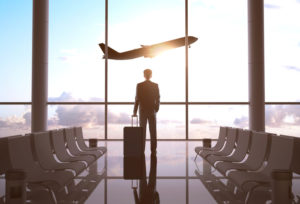Scott McCartney examines the effects COVID-19 will have on the travel industry in The Wall Street Journal, writing:
Most foresee a lasting decline in business travel, but think leisure travel will bounce back robustly. That means airlines and hotels will have to change their business plans, being unable to rely as much on rich revenue from corporate travelers. Expect higher ticket prices and room rates for vacationers to cover the costs with fewer high-dollar customers to subsidize bargain-seekers.
“The airline industry is going to have to examine its business plan,” says Robert Crandall, former chief executive of American Airlines. “You are never going to see the volume of business travel that you’ve seen in the past.”
He estimates one-third to one-half of business travel will go away. More meetings will take place electronically. Trips once thought necessary will be seen as superfluous. “Everybody who depends on business travel is going to have to rethink their game plan,” Mr. Crandall says.
The pandemic has forced widespread, rapid adoption of videoconferencing technology. The technology is mature, easy to use and available on any device.
“Will it be as necessary to send road warriors out? I have serious doubts about that,” says David Tait, a founding architect of Richard Branson’s Virgin Atlantic Airways. “The business market is seriously endangered.”
Jeff Potter, a former CEO of Frontier Airlines who also ran a private-aviation subscription service shuttling people in markets such as Los Angeles-San Francisco, says those frequently traveled hops will probably take the hardest hits.
“We’re all dealing with a case of the unknown,” he says.





